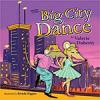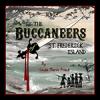Beneath the Polish Moon
Two boys meet and a friendship is forged that will echo for a lifetime. Luke Karpinski and his friend Eugene, along with a cast of unforgettable characters navigate life in a Polish neighborhood in mid-century Milwaukee. Their stories are both hilarious and heartwarming. For the boys, every day is an adventure. It never occurs to them that one day they will grow up and have to go their separate ways. Many years later, Luke is a cop working in the lush city of Miami, his childhood friends almost forgotten. He chose his career to make the world a better place, but life is never that simple.






































